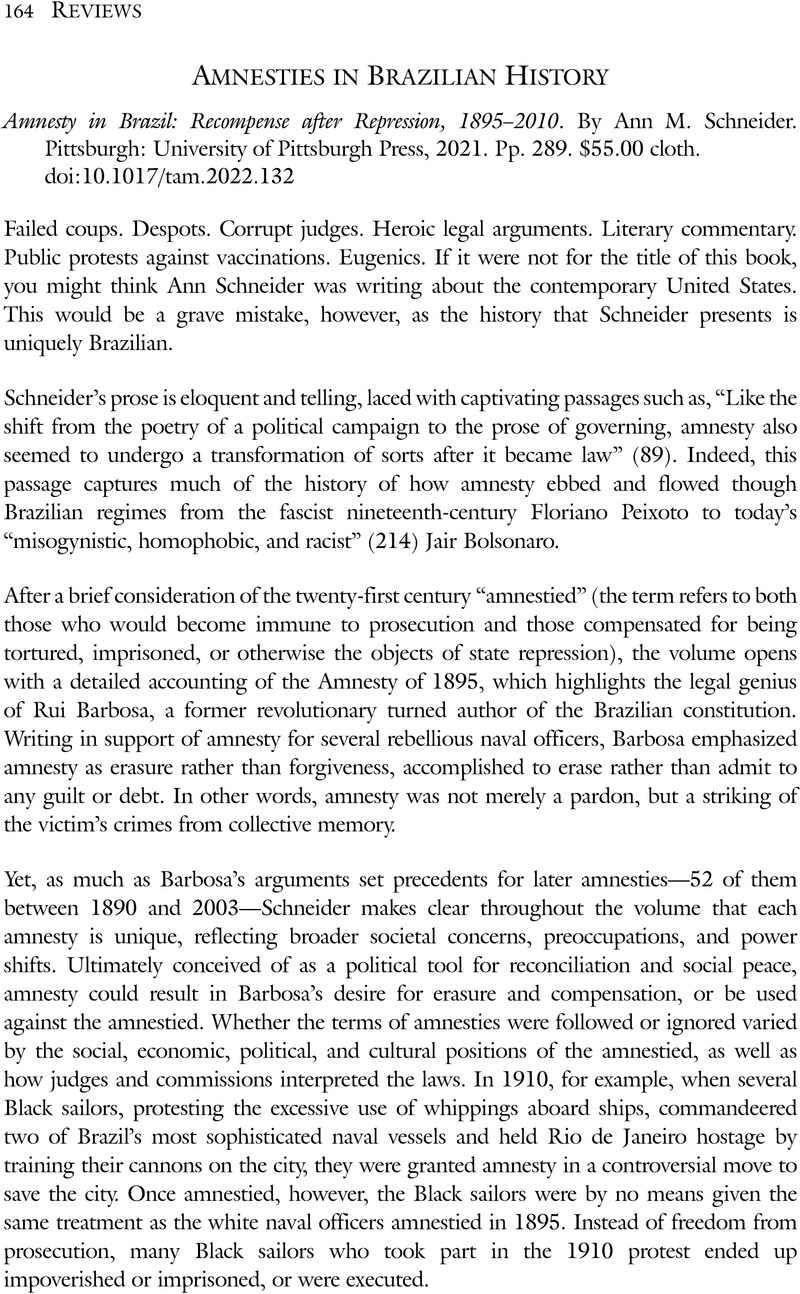No CrossRef data available.
Article contents
Amnesties in Brazilian History - Amnesty in Brazil: Recompense after Repression, 1895–2010. By Ann M. Schneider. Pittsburgh: University of Pittsburgh Press, 2021. Pp. 289. $55.00 cloth.
Review products
Amnesty in Brazil: Recompense after Repression, 1895–2010. By Ann M. Schneider. Pittsburgh: University of Pittsburgh Press, 2021. Pp. 289. $55.00 cloth.
Published online by Cambridge University Press: 10 February 2023
Abstract
An abstract is not available for this content so a preview has been provided. Please use the Get access link above for information on how to access this content.

- Type
- Book Review
- Information
- Copyright
- Copyright © The Author(s), 2023. Published by Cambridge University Press on behalf of Academy of American Franciscan History


